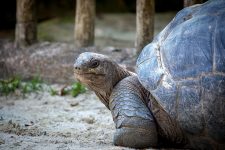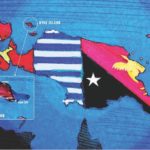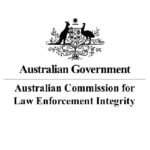Stealing Wildlife is No Laughing Matter

WA Police were surprised by an unusual visitor at Kensington Police Station over the weekend. A critically endangered radiated tortoise was left inside a backpack at the station. Police later discovered the tortoise, who was showing signs of distress, had been stolen from its enclosure at the Perth Zoo last week.
Staff at the zoo held grave concerns for the welfare of the rare tortoise, which is native to Madagascar, fearing it would be smuggled out of Australia and sold on the black market.
Radiated tortoises often fall victim to wildlife smugglers. Their distinctly beautiful star-shaped shell and their meat, which is said to have an aphrodisiac effect, can be sold for very high prices. Tortoises kept as pets often die because they have specific dietary and temperature requirements.
Director of Life Sciences at the Perth Zoo, Maria Finnigan, told local Perth Radio 6PR she is delighted the tortoise in now back at home at the zoo:
“It seems to be in very good health which is very exciting,
“Because we don’t know where it’s been kept, it will be thoroughly checked over by our vet department and go into quarantine for a little while just in case it’s been in amongst other tortoises somewhere.”
Ms Finnigan said the zoo’s tortoise enclosure would remain closed while security was reviewed, as this is not the first time the tortoises have been targeted by thieves.
The Perth Zoo is partnered with international organisation, TRAFFIC, to combat wildlife crime. The zoo assists with funding for a Wildlife Crime Data Analyst, who is responsible for gathering intelligence and reporting on wildlife crime in Australia and South-East Asia, where smuggling live animals is big business.
Wildlife Crime
Wildlife smuggling is an horrendously cruel business. Smuggled animals are concealed and kept quiet before being illegally imported and exported, often causing enormous stress, dehydration and starvation. Most die before reaching their destination.
Australia is a beautiful and unique land, teeming with attractive native wildlife that can fetch a high price on the black market. One way to protect and conserve our precious ecosystem is through disrupting the international trade of wildlife, and helping foreign countries to do the same.
Legal Protection
The Australian Government is a signatory to the Convention on International Trade in Endangered Species of Wild Fauna and Flora (CITES) and the Convention on Biodiversity.
Complying with these conventions helps to protect wildlife, promote the conservation of global biodiversity, keep commercial use of Australian wildlife ecologically sustainable, and guard against unethical conduct in wildlife research.
To ensure compliance, the Environment Protection and Biodiversity Conservation Act 1999 (the EPBC Act) is the foundation of environmental legislation in Australia. It protects and manages important flora, fauna, ecological communities and heritage places.
Despite our strict import laws, significant numbers of exotic animals have become available for sale in Australia after being imported illegally. It is an offence under the EPBC Act to possess illegally imported animals, including their offspring. The consequences can include large fines and prison sentences of up to five years.
Exotic Animals to Look Out For
It takes public awareness and action to stop the cruel trade in protected wildlife.
Here are some of the animals currently on the protected list:
- primates such as gorillas, chimpanzees and monkeys
- exotic reptiles such as snakes, lizards, geckos, alligators, crocodiles, turtles, tortoise
- exotic arachnids such as scorpions and spiders
- exotic insects such as butterflies, beetles, millipedes and giant cockroaches
- skunks, stoats, otters and their relatives
- exotic echidna, anteaters and their relatives
- exotic bats and their relatives
- live exotic coral
- exotic molluscs
- moles, hedgehogs, shrews
- exotic rodents other than domestic guinea pig, domestic mouse, brown rat, and black rat
- exotic amphibians
If you are aware of any of these animals being traded, you can report it to the Department of Environment at wildlifetrade.compliance@environment.gov.au.






